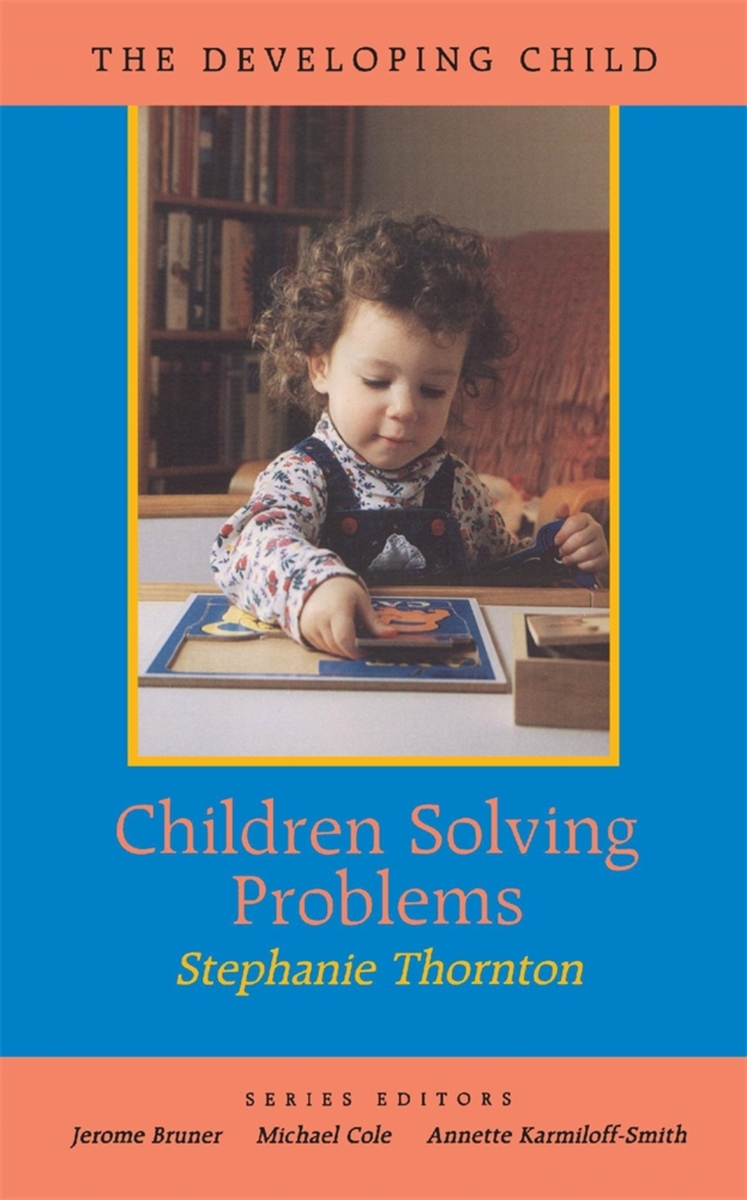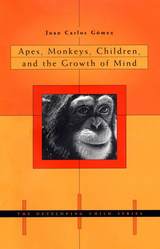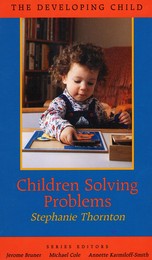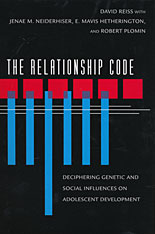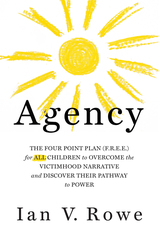eISBN: 978-0-674-04434-0 | Cloth: 978-0-674-11623-8 | Paper: 978-0-674-11624-5
Library of Congress Classification BF723.P8T48 1995
Dewey Decimal Classification 155.41343
A one-year-old attempting to build a tower of blocks may bring the pile crashing down, yet her five-year-old sister accomplishes this task with ease. Why do young children have difficulty with problems that present no real challenge to older children? How do problem-solving skills develop? In Children Solving Problems, Stephanie Thornton surveys recent research from a broad range of perspectives in order to explore this important question.
What Thornton finds may come as a surprise: successful problem-solving depends less on how smart we are—or, as the pioneering psychologist Jean Piaget claimed, how advanced our skill in logical reasoning is—and more on the factual knowledge we acquire as we learn and interpret cues from the world around us.
Problem-solving skills evolve through experience and dynamic interaction with a problem. But equally important—as the Russian psychologist L. S. Vygotsky proposed—is social interaction. Successful problem-solving is a social process. Sharing problem-solving tasks—with skilled adults and with other children—is vital to a child’s growth in expertise and confidence. In problem-solving, confidence can be more important than skill.
In a real sense, problem-solving lies at the heart of what we mean by intelligence. The ability to identify a goal, to work out how to achieve it, and to carry out that plan is the essence of every intelligent activity. Could it be, Thornton suggests, that problem-solving processes provide the fundamental machinery for cognitive development? In Children Solving Problems she synthesizes the dramatic insights and findings of post-Piagetian research and sets the agenda for the next stage in understanding the varied phenomena of children’s problem-solving.
See other books on: Child | Decision-Making & Problem Solving | Developmental | Education | Psychology
See other titles from Harvard University Press
